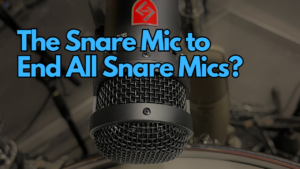
the Money

I’m going to tag team on a post that Tim Corder wrote after attending Robert Scovill’s Willow Creek breakout. Every time I’ve heard Robert speak he always bangs the same drum in regards to vocals and vocal intelligibility, and Tim posted a quote that I’ve heard him use often: Nobody ever went home humming the kick drum. I’m not sure if it was Scovill who said it, but I’ve also heard the lead vocal referred to as “the money”. At a concert it’s what most people are paying for, and in a contemporary worship environment the vocal content is the main thing that separates contemporary worship from mainstream contemporary music. You can read Tim’s post to hear Robert’s suggestions on approaching this which I also recommend as a good place to start if you’re struggling with vocals. But I just want to tag on some thoughts about the whole vocal thing.
Everybody loves to talk about how important the vocal is and how important intelligibility is, but I think there’s still an elephant in the room when it comes to vocals. The sound quality of instruments can be a very subjective thing, and while there are definitely some bad sounds to avoid, finding good ones and arriving at that destination is typically in the hands of the engineer and producer. However, when it comes to vocals it doesn’t seem to work this easily. For some listeners, picking out the vocal can be quite easy, but for others it can be a tremendous challenge. And then some weeks there can seem to be a fine line between a true live band musical performance and karaoke. I think an engineer’s mind can really play some games in this arena so here are a couple of bits of advice on further approaching vocals.
One thing I’ve found over the years is that the more familiar I am with a song, the easier it is for me to understand the vocal. I believe this is also true for the audience, which can work to your advantage. However, there is also a dark side to this, and maybe you’ve experienced this. You go see your favorite band on their big-time arena tour and they play all your favorite songs and you sing along at the top of your lungs (or maybe your wife/girlfriend/buddy does). Then the singer starts talking to the crowd and all you hear is mush. That’s an intelligibility issue, and I believe your knowledge of a song can actually work against you at times when you’re trying to mix a vocal.
This can be an enormous challenge in a house of worship. Both of the churches I’ve worked for repeat the same songs for months on end. While there are definite benefits to this for audience participation, this can work against the engineer trying to achieve good vocal intelligibility. I know this is huge in my world because I’m often trying to mix the vocals so that the folks who aren’t familiar with the songs can understand them. We put a large emphasis on inviting your unchurched friends to our services so getting the vocals in a place they can understand them is the goal.
So what do you do when you’re familiar with the songs? Personally, I try to spend the bulk of my time working on vocals in songs I’m not as familiar with. I may know all the songs, but there’s usually one or two where the lyrics won’t stick in my head such as when we do an occasional traditional hymn in a not-so-traditional way. Non-worship music typically also works great for this, however, the vocalists are usually different. Another thing that helps is to just ask around at rehearsals and then after events. If the non-audio folks can understand the vocals on a regular basis, you’re probably in a fairly good place. Of course, if they think it sounds like karaoke you might need to pull them back a bit…
We also have a unique intelligibility tool in the contemporary worship setting that I haven’t seen in the mainstream touring market: lyrics on the screen. It’s my belief that anytime you get the lyrics on the screen, intelligibility will increase. Have you ever listened to a song convinced of the lyrics only to open the liner notes and find out what they really are? On your next listen did the true lyrics seem to pop out more? I throw this out there because if you have the lyrics on the screen, and you’re really struggling with a vocal, this might be a good week to not get too hard on yourself and to relax a bit. Now this doesn’t mean you can sit back and do nothing because we all know that just because the lyrics are up there doesn’t mean they’re correct…
I will be honest and say that even though I am going for a lot of intelligibility, when we are doing familiar songs that the audience tends to always engage with when the lyrics are on the screens, I will sit the vocal back into the mix a bit and let the instrumentation drive it more. In my opinion, the tradeoff of clear articulation of every word for more instrument energy in the room is worth it when the audience is engaged. In this case the audience becomes the vocal and driving the instrumentation can sometimes even drive them up in level. However, bear in mind when I am doing this, the vocal is still there and if it’s a lead vocal it is still the lead “instrument”. After all, the worship leader still needs to be in a position to lead when necessary.
My last bit of advice would be to not get lazy and try not to get too comfortable. I think it’s very easy to spend multiple weeks working on getting great vocals and think you’ve arrived. Great vocals is an ongoing thing even working with the same singer(s) on a regular basis. However, try to be careful not to overanalyze things here. I’ve never been in a church environment where there weren’t plenty of people around who are waiting to tell you when they can’t hear or understand the vocals. Make sure to try Scovi’s tricks that Tim mentioned; Tim also has some great ideas for putting Scovi’s tricks into practice so check out the post. I’ll be back within the next week to talk about some of the new s
tuff I tried last weekend.

 Previous Post
Previous Post



